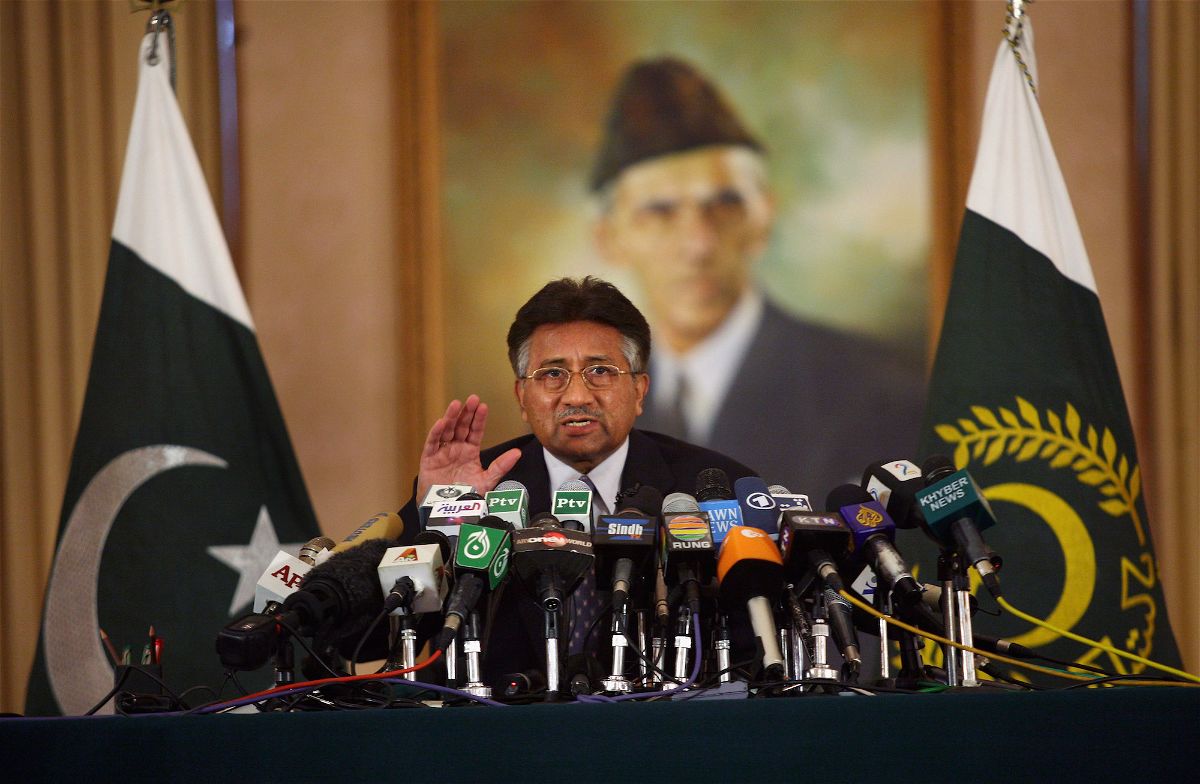Pakistan’s former President Pervez Musharraf dies in Dubai

Former Pakistani President Pervez Musharraf
By Sophia Saifi, Tara John and Rhea Mogul, CNN
Pakistan’s former President General Pervez Musharraf has died in Dubai after a prolonged illness at Dubai American Hospital, according to a statement from the Pakistani military. He was 79 years old.
In a statement sent to CNN, senior military officials expressed their “heartfelt condolences” on the “sad demise of General Pervez Musharraf.”
“May Allah bless the departed soul and give strength to the bereaved family,” the statement read.
Tributes and messages of condolences have poured in from Pakistani politicians.
Pakistan’s prime minister Shehbaz Sharif expressed his “condolences and sympathy to the family” of the former leader in a statement Sunday.
The chairman of Pakistan’s Senate, Muhammad Sadiq Sanjrani, also expressed his “deep sorrow and grief,” while the Tehreek-e-Insaf party, led by former prime minister Imran Khan who was ousted in a vote of no confidence last year, said: “Our prayers and condolences go to his family and we share their grief.”
The former leader, who had been living in self-imposed exile in Dubai in the United Arab Emirates since 2016, seized power from former Prime Minister Nawaz Sharif — Shehbaz Sharif’s older brother — in a military coup in 1999 and appointed himself president in 2001, while remaining head of the army. He continued to lead Pakistan as president until 2008.
Musharraf became a key ally of the United States following the 9/11 terror attacks, and he tried to become an indispensable figure in combating Islamic extremism.
But his time in power was marred with controversy and he was accused of widespread human rights abuses and oppression.
His term was punctuated by two failed assassination attempts in 2003. In November 2007, he declared a state of emergency, suspended Pakistan’s constitution, replaced the chief judge and blacked out independent TV outlets.
Musharraf said he did so to stabilize the country and to fight rising Islamist extremism. The action drew sharp criticism from the United States and democracy advocates. Pakistanis openly called for his removal.
Under pressure from the West, Musharraf later lifted the state of emergency and called elections, held in February 2008, in which his party fared badly.
He stepped down in August 2008 after the governing coalition began taking steps to impeach him.
Musharraf then went into exile but returned to Pakistan in 2013 with the aim of running in the country’s national elections. Instead, his plans unraveled as he became entangled in a web of court cases relating to his time in power.
In 2019, he was sentenced to death in absentia for high treason. The ruling was later overturned.
Musharraf had been living in Dubai since March 2016, when Pakistan’s Supreme Court lifted a travel ban, allowing him to leave the country to seek medical treatment there.
He was married to Sehba Musharraf and had a son and a daughter.
The-CNN-Wire
™ & © 2023 Cable News Network, Inc., a Warner Bros. Discovery Company. All rights reserved.